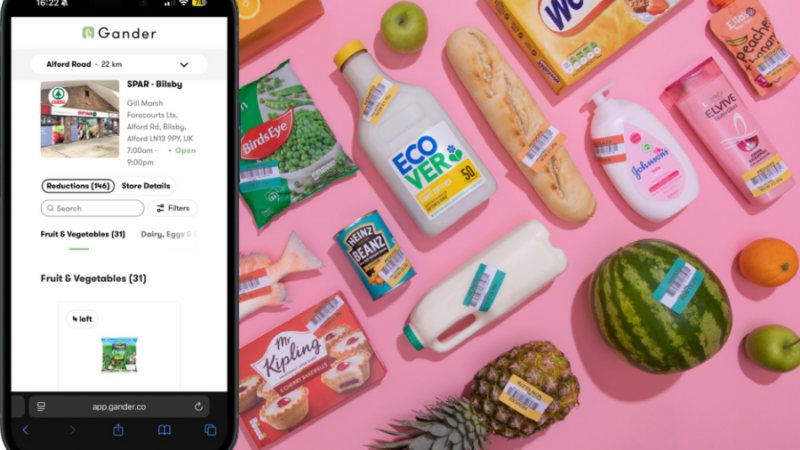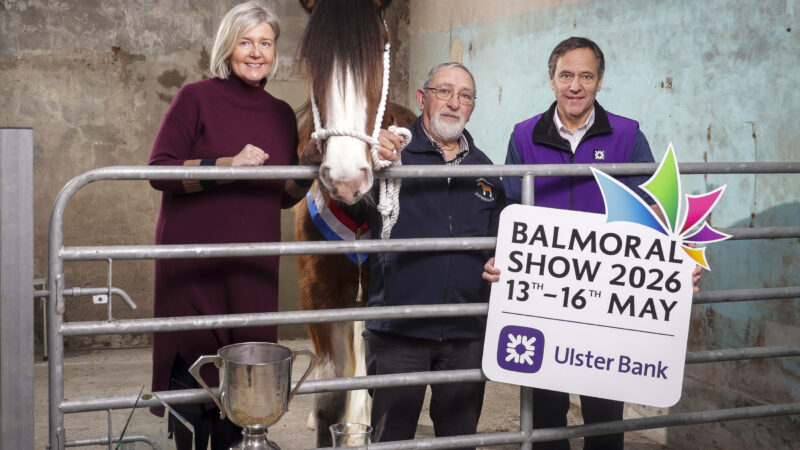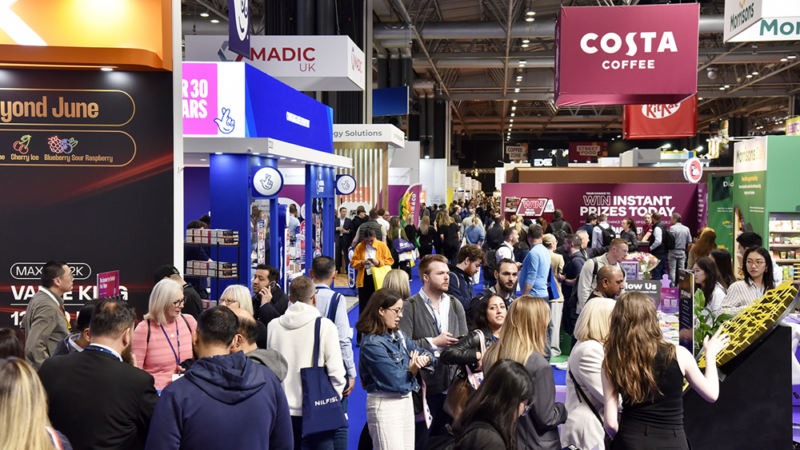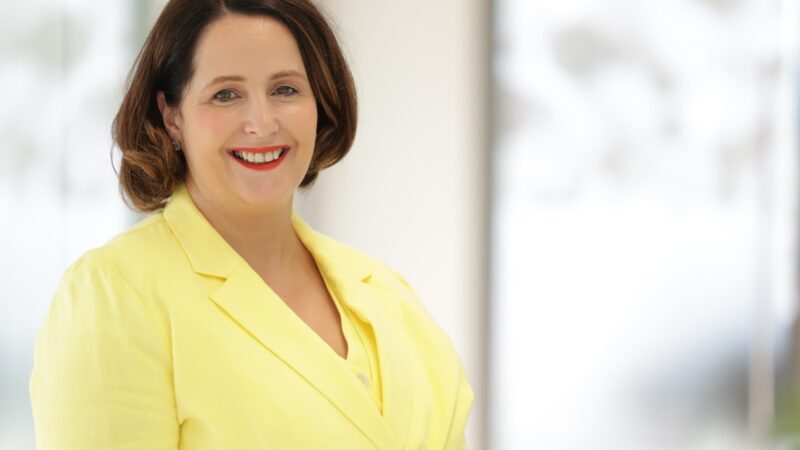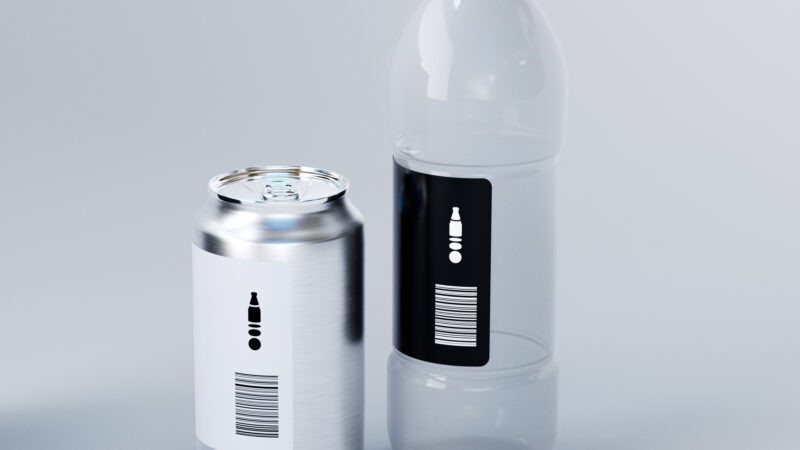Eastern promise: we profile Dundela Pharmacy on Belfast’s Belmont Road
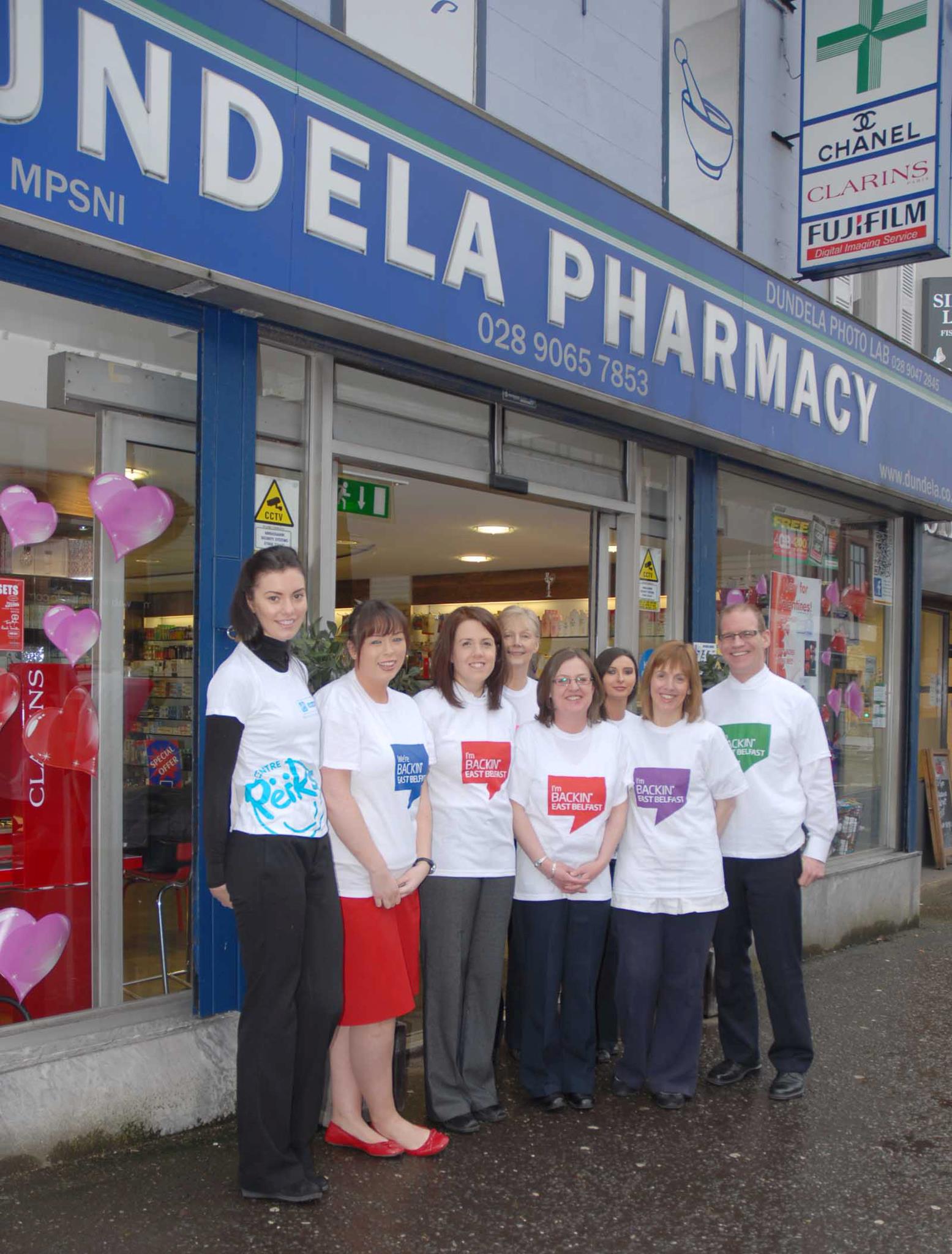
Dundela Pharmacy on the lower Belmont Road is the epitome of what a community pharmacy should be. A few doors either side is a butcher and a baker and while there’s no candlestick maker, a local craft shop certainly sells them. Owner David McCrea tells Neighbourhood Retailer how it’s going.
David McCrea’s late father John opened Dundela Pharmacy in the front room of a terraced house in 1959. Much has changed in the years since but one thing that remains is the community ethos that sets it apart from so many high street multiples.
If ever its value to those it serves was tested it was during the pandemic and David is rightly proud of how the whole team answered the call to arms.
Call to arms
“We stayed open throughout and were able to help people when other health care providers may not have been as accessible,” he told Neighbourhood Retailer.
“I didn’t want anyone to be fearful and realised that everyone would have their own worries in terms of putting themselves and their families at risk. But they were fantastic both in their own commitment and making the changes that we had to do. Initially it was just essential services but that changed as time went on.
“For the first few months we were working from 7 in the morning until 10 at night and physically could not have done any more.”
That work though took its toll and David is still processing how much it affected him personally.
“Everyone has struggles in their own way and I actually find it quite hard to talk about it,” he explained. “I don’t think it’s too strong to say that I am possibly suffering from PTSD after it.
“I struggled with the workload and with the fact that other people were at home in the early days when the sun was shining, and I know well that they had their struggles too.
Draining
“I found it physically and emotionally draining. There was no end in sight, and we didn’t really know what we were dealing with. The situation evolved and changed every day and what got me was that as the owner of a business I was responsible for the entire team and in some ways for a community… the physical and mental welfare.”
And David would not be in the least surprised to see the impact of the pandemic play out when it comes to those needing medicinal intervention to help them cope.
“We are not seeing that yet in terms of GP prescriptions, but I know that the mental health effects of any trauma tend to come one-and-a-half to two years later.
“I think we will see that toll being taken in the general population. The pressure I was under was no greater than someone stuck at home with three small kids and no garden.”
Stepping up
David’s team of 14 staff; including pharmacists, dispensers, counter staff, a delivery driver and photo lab technician showed not only their professionalism but their dedication throughout and he is confident that if called upon to do more in future they will again step up.
“We have already been doing flu vaccines for years to augment what GPs and other frontline providers do and we are now the frontline provider for the spring booster vaccine in care homes and that is the first time that pharmacy has been given such a high profile role in that fight. We have been recognised for what we are capable of and hopefully that will continue.”
While much has changed since David took over the business in 1995, he says the biggest focus moving forward is survival rather than further expansion.
“We have taken on new services such as vaccination, a punch dispensing robot for compliance aids, we have developed screening services and there is a huge demand for what we are doing,” he told Neighbourhood Retailer. “But because of the way the health care budget works, particularly since 2011, the biggest challenge has been simply survival.
“We hope to develop new services and that the transformation of the health service will give pharmacy a bigger role. I hope that retail perfumery and photographic will remain viable, but the big change is likely to be in pharmacy.”
Brexit impact
Brexit has also had an impact with “the biggest problem an increase in the price of drugs” for pharmacies like David’s.
“Most things are available but because we are a unique market our prices are still going up. We also have still in place here European legislation called the Falsified Medicine Directive which has been scrapped in GB. That means some medicines licenced in GB are not licenced here and that inevitably pushes prices up.
“Our reimbursement is still based on the English Drug Tariff which is based on English cost prices and trying to get our department of health to recognise that disparity is difficulty. It will happen but in the meantime it is affecting our cashflow.”
And David doesn’t see imposing a levy on some prescriptions as necessarily being an answer when it comes to raising more cash for our beleaguered health service.
“My understanding is that it costs almost as much to police and administer it as it actually raises,” he says.
Over the counter
“What we do find with free prescriptions is that there are an awful lot of things prescribed like paracetamol or ibuprofen that can be bought over the counter for a few pence but the cost for the health service to give that out with a GP consultation is as much as £60, so that is a cultural change that is needed to get people to take more responsibility for their own heath.
“If people took more responsibility and acted on their pharmacist’s advice a lot of minor conditions would never need to reach the GP, freeing up resources for hip replacements, mental health and many other areas where we don’t have enough resource.
“You need to look at the value of community pharmacy rather than the cost of it. A case in point is medicine adherence services which is providing medicines in trays.
“We can do that for £15 per patient per week and it keeps people out of hospital. That is being sorted at present but for many years the Department of Health could only see the cost of what we were doing, but it costs £600 to put one person in hospital for one night and if we can stop that its 40 weeks of providing this service.
“It’s matter of convincing people to look at the value of things rather than the cost.”
Sense of community
While Dundela Pharmacy has always been appreciated by the community it serves David says the past two years have made people more grateful for its services than ever, as well as fostering a real sense of community.
“It raised our profile and we got lot of very positive feedback from people tankful for what we were doing,” explained David. “We have dozens of people in every day asking advice who can’t get through to their GP. The pharmacy network is an extremely valuable resource and people are beginning to recognise that.
“In terms of the shop local mentality we saw that both in terms of retail and prescription dispensing.
“Pre Covid people may have got their script near to the health centre or near to where they worked but now they are getting their prescriptions near to where they live because for a long time they didn’t go their doctor and maybe not to their work so a pharmacy like our one, in the middle of a community. has benefitted from that. Whether that’s a permanent change is hard to say.”
Fears for the future
But David has real fears for the future of many of his high street friends and colleagues.
“I know I started doing a lot of my shopping online, so I realise that if people like me don’t change back to their old habits I am part of the problem and I do fear for other high street retailers given the change in shopping habits which has only been accelerated by the pandemic,” he says.
“Retail wise a lot of shopping moved online during the pandemic but most of what we sell is not what people would be ordering online so we have been protected from that shift.
“There used to be a wee electrical and hardware store here and I would have been there any time I needed to, but I can’t get what they had locally now so I get it from Amazon and that breaks my heart to be honest.”
Inflation threat
Inflation too, driven in no small part by the war in Ukraine, is likely to hit retailers hard, including David.
“I expect to see that. Our fuel has gone up frighteningly and I know the cost will filter through to everything we buy, and we will eventually have to put our prices up at a time when people have less money in their pockets. A lot of the luxury stuff will probably drop-off.”
And David is passionate in his belief that much more needs to be done to protect the high street from the threat posed by Amazon and other online retailers.
“The value of bricks and mortar retail must be seen in terms of the social capital, the benefit to the community and in providing employment. The online retailers don’t do any of that so tax them properly
“Our biggest killer is rates and I know there were no rates collected for two years but they will be crippling when they start again.
Social value
“There needs to be a recognition of the social value in having a vibrant high street of mixed shops that is a community within itself. There are too many rows of shops that are derelict apart from a hairdresser and the bookmaker and it leads to all sorts of crime, deprivation, and antisocial behaviour.
“Online has none of the overheads, the staff costs, the shrinkage caused by crime… the playing field needs to be levelled.”
Speaking of crime, one thing David remains grateful for is the fact that Dundela is yet to be exposed to the sort of terrifying incidents that many of his colleagues in pharmacy have had to endure.
“Touch wood we have not had any violent attacks or robberies or attempted robberies, though I am very aware that plenty of my colleagues have.
“It’s just luck that we have not been targeted. We don’t want to put up barriers but there has to be more protection. We have had an ongoing problem with shoplifting and we have to just be on our guard.”
Nature of wellbeing
David is also passionate about the role of the pharmacist within the health service and helping patients on the journey to wellbeing.
“Wellbeing is not just about treatment – that is one aspect, and we will always supply any medicines that might be required – but wellbeing is about lifestyle, prevention and knowing how to look after yourself. That is something the health service can do more on and pharmacy can certainly play its part.
“There’s a service called Living Well that has been around for some time but there’s a lot more that could be done. Because it is less tangible it is harder to get funding for it and it’s a matter of whether that can be commissioned.”
As for his own wellbeing, David is a fan of decompressing in the garden these days as he admits to not perhaps being as active at 53 as he was a decade ago.
Downtime activities
“Ten years ago, I might have said running and cycling but I love gardening now and I don’t know when that happened,” he laughed.
“I love sailing and kayaking, anything out on the water, and family time… even though there never seems to be enough of it.
“I have three grown up daughters, two of whom are at university, and one is doing her A Levels, add in the wife and two female dogs and I am very much outnumbered.
“Most of the people who work with me are also female so why should it be any different at home!”

